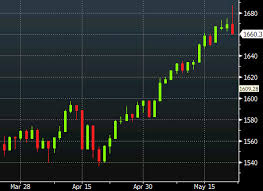
The IMF has done well to publish a series of background research papers—what it calls Selected Issues—along with the new edition of its annual assessment of the Indian economy. Photo: Bloomberg
The Indian government seems to have done well in the
latest health check conducted by the International Monetary Fund (IMF)
on the state of the economy.
Much of what the multilateral lender has said is unexceptionable:
the authorities have done well to reduce external and budgetary
deficits, tighten monetary policy to battle high inflation, shown
renewed enthusiasm for structural reforms and tried to address market
volatility. More needs to be done on these fronts to reduce the risk
profile of the Indian economy—but the overall tenor of the report is not
very different from what many other commentators have already pointed
out.
The main emerging problems are actually to be found in
the balance sheets of Indian companies and banks. The IMF has done well
to publish a series of background research papers—what it calls Selected
Issues—along with the new edition of its annual assessment of the
Indian economy. One of the papers here gives us a good idea of how micro
risks have been accumulating in recent years, as Mint also noted in its editorial published earlier this week about how corporate leverage is now the biggest threat to economic stability in India. 
Indian companies have way too much debt. Leverage of
non-financial companies has climbed since 2007. Banks continued to lend
to companies—or were forced to because of the usual calls from New
Delhi—after the global financial crisis. External commercial borrowings
have soared. Indian companies now depend on foreign funding for a fifth
of their debt finance. The IMF says that Indian companies are far more
leveraged than their emerging market peers.
Much of these risks are concentrated in a smaller group
of companies in certain sectors such as infrastructure and construction.
The IMF has used four common indicators of corporate financial
health—interest cover ratio, profitability, liquidity and leverage. It
says that the financial health of Indian companies is at its worst in
almost a decade. And their vulnerability to shocks such as higher
interest rates or currency movements has climbed.
The upshot: the massive wave of deleveraging that took
place in corporate balance sheets in the five years after 1998 has been
undone in recent years.
PRASHANT SHARMA
PGDM-IIsem
SOURCE-MINT
No comments:
Post a Comment